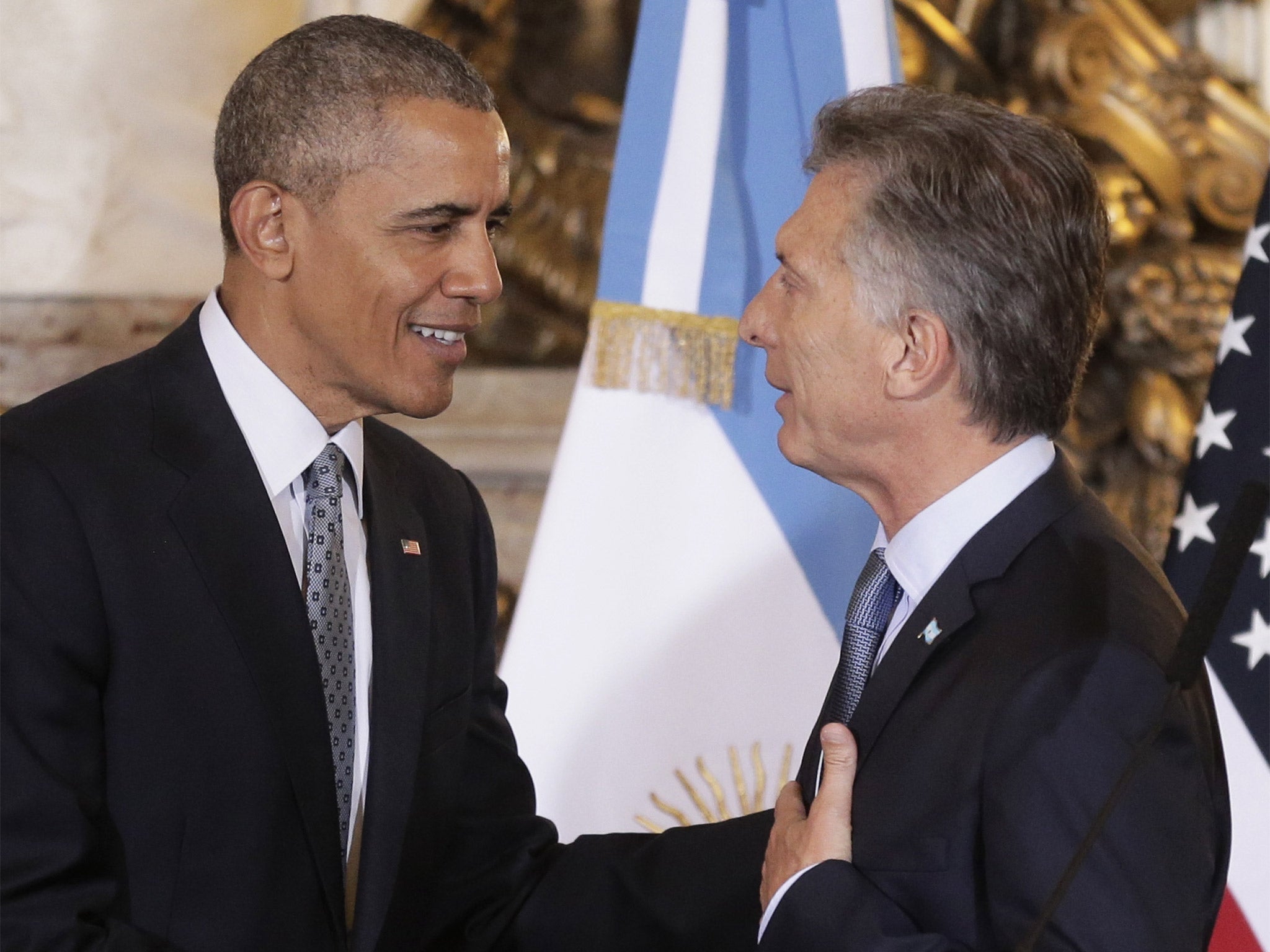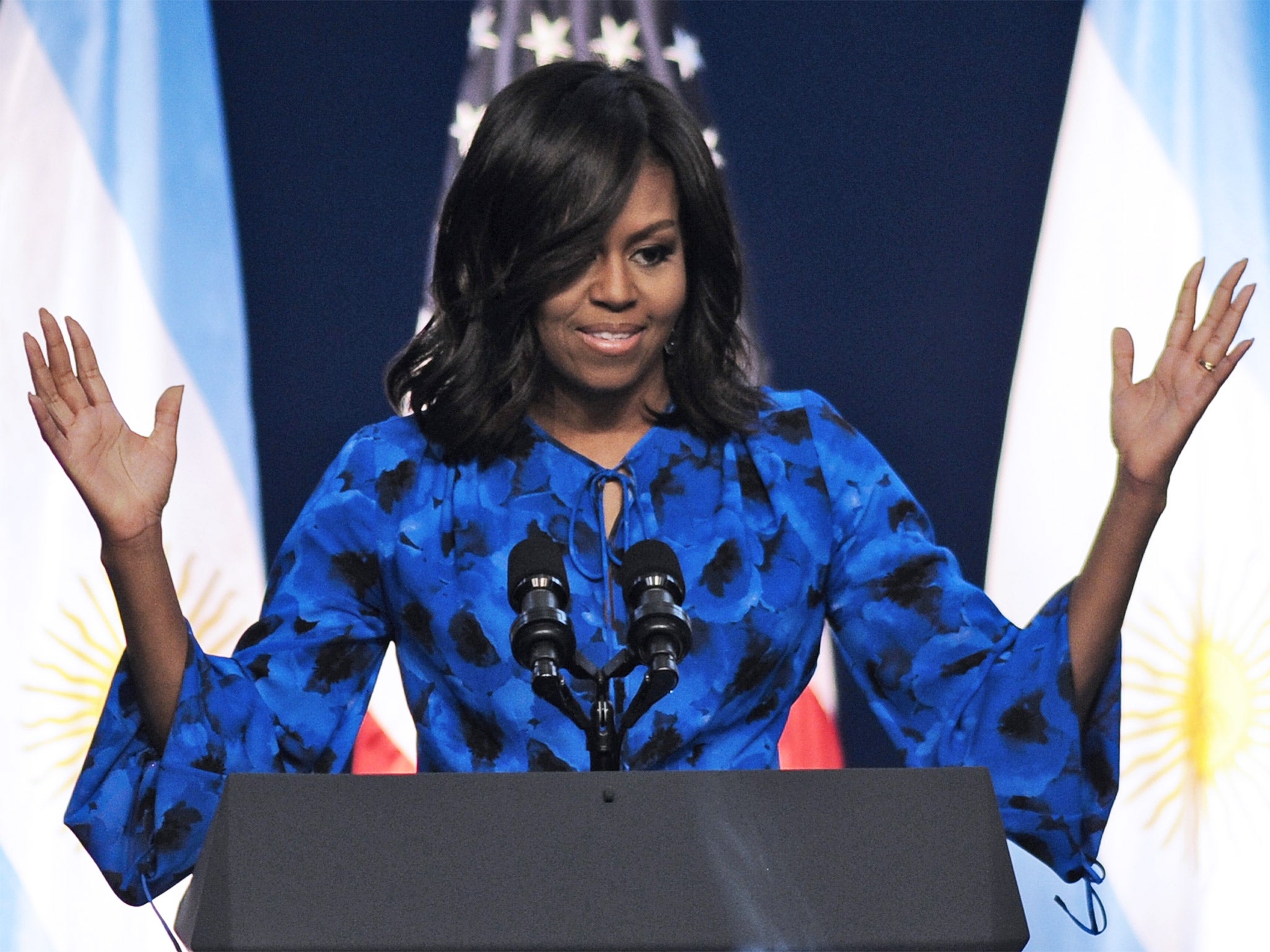Obama in Argentina: President seeks to heal old wounds over US backing of nation’s military coup 40 years ago
Mr Obama is expected to face protests over America’s part in the ‘dirty war’ that followed in which 30,000 people were ‘disappeared’

Your support helps us to tell the story
From reproductive rights to climate change to Big Tech, The Independent is on the ground when the story is developing. Whether it's investigating the financials of Elon Musk's pro-Trump PAC or producing our latest documentary, 'The A Word', which shines a light on the American women fighting for reproductive rights, we know how important it is to parse out the facts from the messaging.
At such a critical moment in US history, we need reporters on the ground. Your donation allows us to keep sending journalists to speak to both sides of the story.
The Independent is trusted by Americans across the entire political spectrum. And unlike many other quality news outlets, we choose not to lock Americans out of our reporting and analysis with paywalls. We believe quality journalism should be available to everyone, paid for by those who can afford it.
Your support makes all the difference.President Barack Obama has acknowledged that the United States lost the trust of Argentina with its initial backing of the country’s military coup 40 years ago, while reiterating a promise to declassify all of the Pentagon and US intelligence documents connected with the period.
Closing old wounds – such as those around the coup that ushered in the 1976 to 1983 dictatorship – became the main focus for President Obama at the start of a two-day visit to Argentina. That also included offering encouragement to the new centre-right government of President Mauricio Macri, who has taken action since being elected to discard the economic and foreign policy priorities of his predecessor, Cristina Kirchner de Fernandez, that often put Buenos Aires at odds with the US.
“I’m impressed because he has moved rapidly on so many of the reforms that he promised, to create more sustainable and inclusive economic growth, to reconnect Argentina with the global economy and the world community,” Mr Obama said a joint press conference alongside Mr Macri.
Mr Obama, whose wife Michelle has joined him on the trip, was expected to face scattered protests in Buenos Aires and also during a visit to Argentine Patagonia over America’s part in what he called the “dark period” of the military coup and the “dirty war” that followed in which 30,000 people were “disappeared”.
To many Argentinians who lost family and friends in that period, the presence of Mr Obama on Argentine soil on the 40th anniversary of the coup appeared insensitive. “The timing of the visit is a provocation,” said Miguel Funes, 39, a member of Ms Fernandez’s Front for Victory party. Yet there seemed to genuine excitement in the capital at the arrival of Mr Obama with thousands lining its boulevards as the presidential caravan of limousines made its way from the US ambassador’s residence to the presidential palace. Mr Obama laid a wreath to victims of the dirty war at the National Cathedral a few steps away from the palace.

Mr Macri’s drive to forge a new image for his country and discredit his predecessor has also led him into the dark tangle of Alberto Nisman, a former prosecutor who was found dead early last year just hours before he was due to give Congress details of what Mr Nisman believed had been an attempt by President Fernandez to cover up Iran’s role in the 1994 bombing of a Jewish community centre in Buenos Aires. Ms Fernandez has denied Mr Nisman’s accusations.
The contention of the last government that Mr Nisman had had taken his own life has been challenged since Mr Macri took office and this week a court ruled that the current investigation be moved to a high federal court that has the jurisdiction to handle potential political murder cases.
The attack in Buenos Aires 21 years ago killed 85 people and wounded hundreds more. It stood as the most deadly terror attack in the Americas until 9/11.
Join our commenting forum
Join thought-provoking conversations, follow other Independent readers and see their replies
Comments